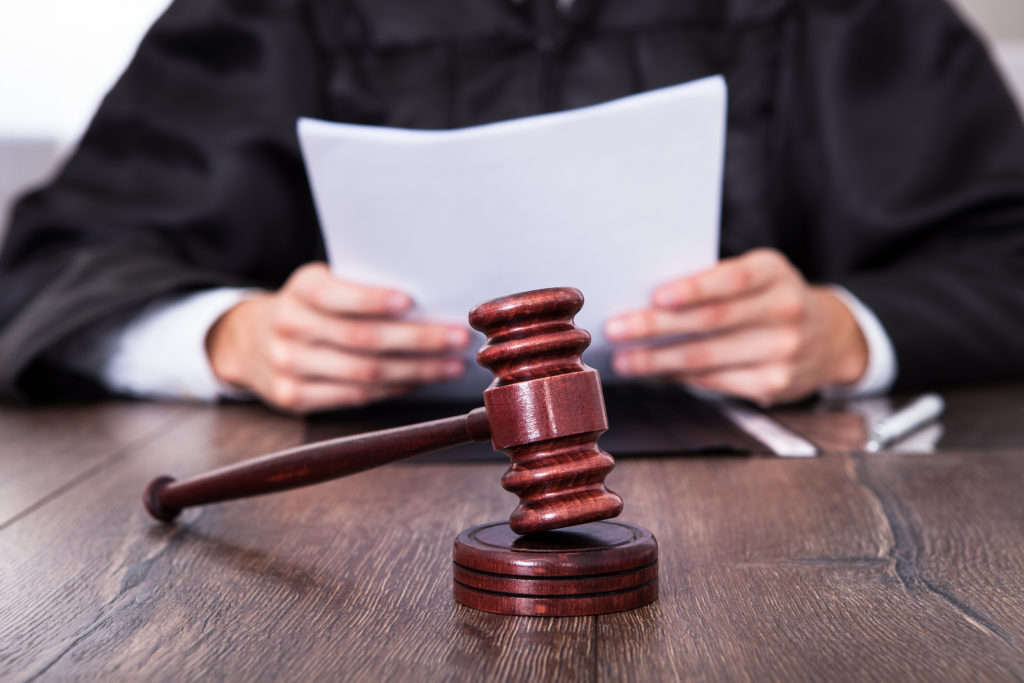
When deciding what is best for you and your family after an accident, you will be faced with the question of whether to settle or go to trial. Less than 5 percent of cases are determined through a trial. The rest are settled out of court. Settling can help you sidestep the time-consuming litigation process. However, it is sometimes not possible for the parties to agree on a fair settlement. In these situations, a judge or jury will decide the case.
Here’s what you need to know.
What to expect when seeking a settlement
After an accident in which the other driver is wholly or partially at fault, you will file a claim with the other driver’s insurance company. The insurer will review the police report, medical records, and other submitted evidence. The insurance company may ask you to make a recorded statement and/or settle. Never take either of these actions without first consulting with an experienced personal injury attorney. The insurance company will always try to settle for the least amount possible. It is highly likely you are entitled to more compensation than the insurance company is offering.
An attorney will inform you of your legal options and determine the strength of your case. If you decide to use an attorney, he or she will conduct a thorough investigation. This includes obtaining the police report, photographs of the accident scene and damage, testimony from eye-witnesses, medical records, and more.
In some cases, the attorney will consult with accident reconstruction experts, manufacturing experts, and medical experts. He or she may subpoena video footage or evidence from the vehicle’s black box. Your attorney will also anticipate the opposing party’s potential lines of defense.
Your attorney will submit a demand package to the opposing party detailing your case, including liability and damages (injuries, medical bills, lost wages, pain and suffering, etc.). The opposing party will review the demand package and either reject it, accept it, or make a counteroffer.
If the case is settled, you may be entitled to damages depending on the degree to which you and the other party or parties were at fault. For more information on what damages you may be awarded, read our detailed article here.
If the parties cannot reach an agreement, your attorney may work with you to file a lawsuit.
What to expect in a lawsuit
Before a trial, the attorneys of both parties will launch a discovery phase in which they seek even more information from each other. Often, a mediator – typically a current or former judge – holds informal proceedings between the parties in another attempt to reach an agreement.
If mediation is still not successful, the case will go to trial. Usually, a jury will evaluate the evidence and make a determination. This is typically a time-consuming, labor-intensive, and stressful process. It can take a year or more for cases to even get to court. Trials are characterized by examinations and cross-examinations, which can be frustrating and draining. Trials are more public, which means your affairs will be known to more people, including the jury. In some cases, your character may be called into question.
While in most cases a jury may be inclined to offer a larger payout, this is never guaranteed. Personal injury cases are determined under common law. This means that in most cases, the jury will award only according to what the plaintiff is able to prove. The amount of compensation depends on how well the claimant is able to articulate his case. The defendant can tarnish or cast doubt on the testimony of a key witness, and this can damage the case. The compensation amount received is purely dependent on the discretion of the judge or jury.
Once a judge or jury makes a ruling, the losing side can choose to appeal. When this happens, the trial can drag on for years. In the meantime, having to pay your medical costs and other expenses out of pocket can be challenging.
An out-of-court settlement, on the other hand, can be wrapped up in a matter of days. In a settlement, the parties involved also have more room to negotiate. In addition, the details of the case and the settlement are kept private. Settling out of court can also be less costly for all parties.
Each case is different, so it is important to consult with an experienced personal injury attorney before deciding how to proceed. Personal injury attorneys are paid on a contingency basis, meaning they get a percentage of the settlement. The Lamber-Goodnow Personal Injury Legal Team offers free, no-obligation consultations for individuals involved in accidents. We get paid only when you get paid.
For more information on the steps in a legal case, read our detailed article here.
For more information on what to do after an auto accident to help build a strong case, read our article here.
#KC
